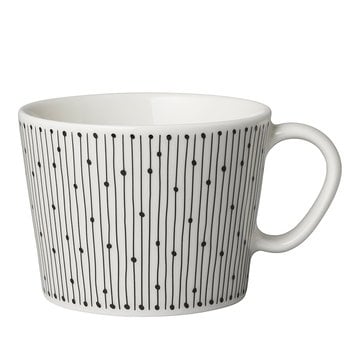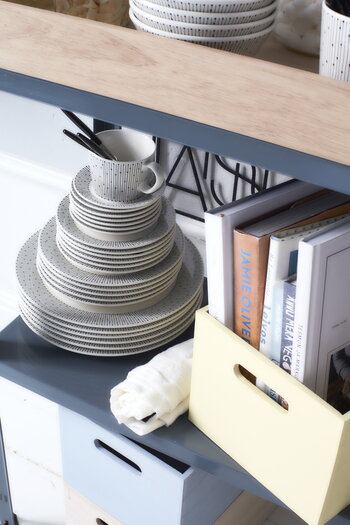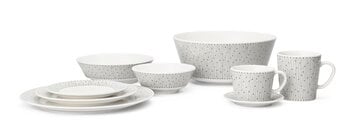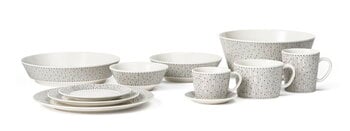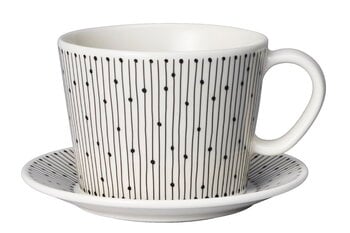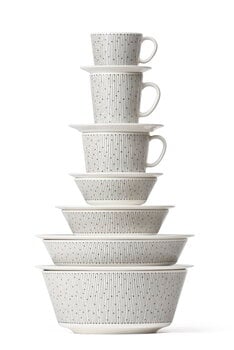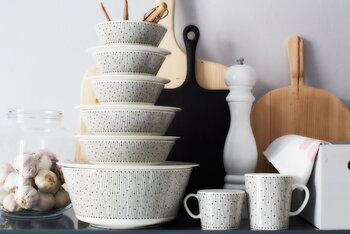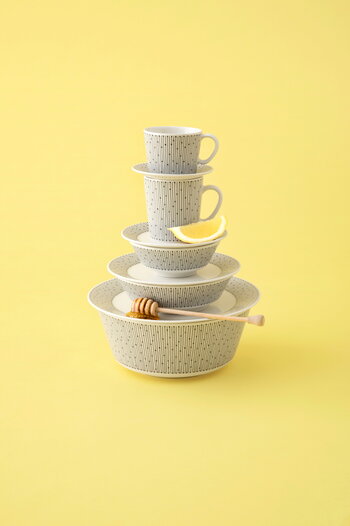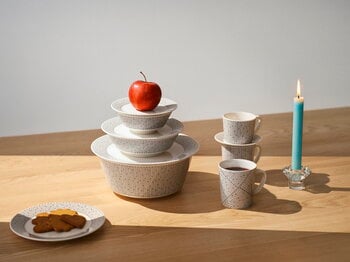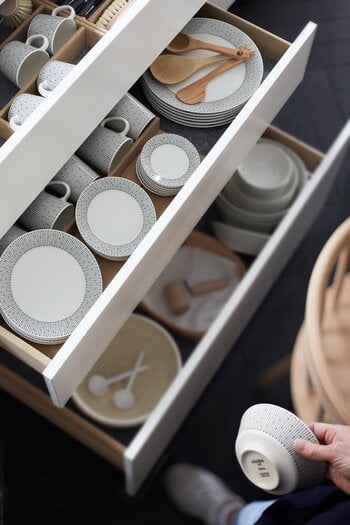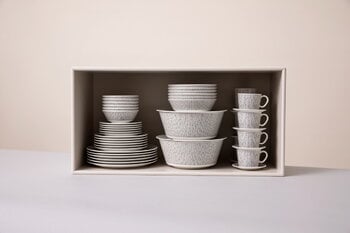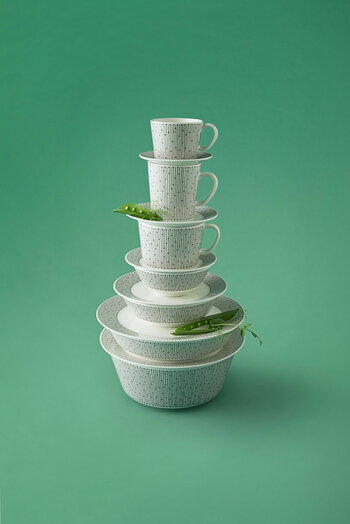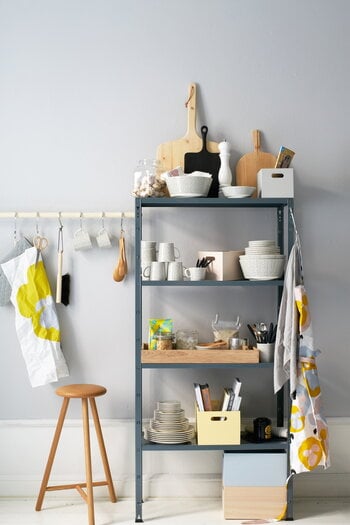Arabia’s 0,17 L Mainio Sarastus cup gives kitchens and table settings a touch of timeless Finnish design with a contemporary spirit.
Mainio Sarastus is a tableware collection launched by Arabia in 2018, designed to bring beauty and practicality especially to small kitchens and urban homes. The most essential elements in its product design were versatility, durability and stackability: besides dining, the ceramic tableware is designed for preparing and storing food, and the plates can be used as lids for the bowls.
Symbolizing the power of light, the Sarastus (”dawn”) pattern was inspired by Raija Uosikkinen’s Ivalo decoration from 1965, with its rhythmic lines arranging into a new, fresh shape. The lightweight and stackable Mainio Sarastus cups, bowls and plates are dishwasher-proof and suitable for the oven as well as the freezer.

